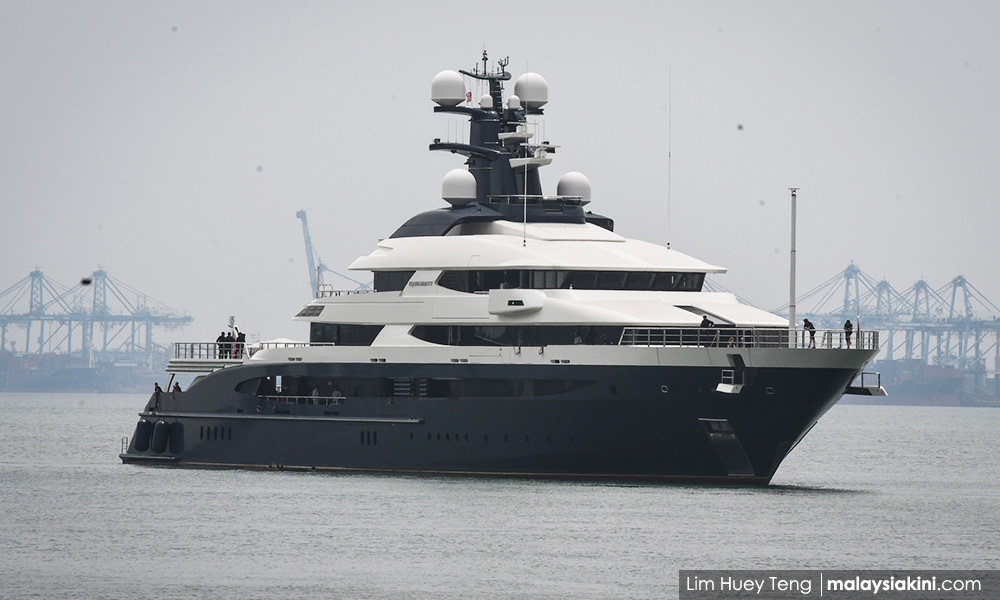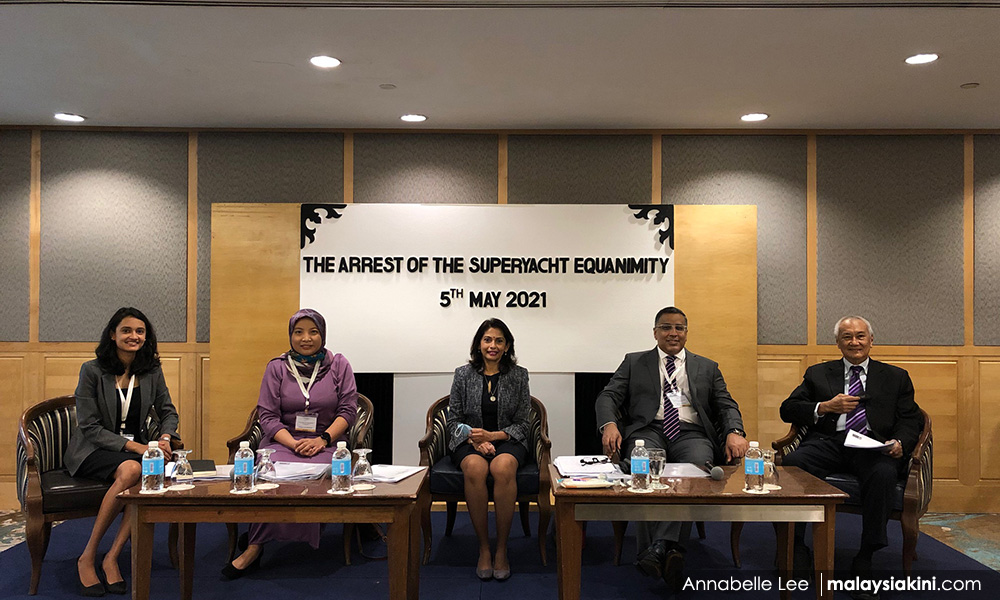The lawyer who led Malaysia’s efforts to arrest, reclaim and eventually sell controversial superyacht Equanimity has described the case as a milestone for admiralty law worldwide.
Sitpah Selvaratnam also believed it helped restore confidence in the country’s justice system and image following the 1MDB global financial scandal.
Speaking about her experience in a seminar today, she said her team had strived to uphold international standards in handling the Equanimity even before it entered Malaysian waters in Aug 2018.
“At that time, it was amidst all the suspicion that had enveloped Malaysia. With Malaysia’s reputation badly tarnished, (there was) suspicion of whether there was any rule of law in Malaysia.
“And so, the most credible procedures were to be adopted.
“Admiralty law totally exhibited Malaysia’s ability to exercise natural justice and the rule of law. And it showed Malaysia had the capacity to invoke international conventions and live up to international standards,” she said.
Gaining global confidence was also essential to fetching a good price for the vessel, infamous for being the luxurious personal playground of fugitive financier Low Taek Jho (Jho Low).
Low had purchased the RM1 billion (US$250 million) superyacht using funds stolen from 1MDB.
During the seminar, which was organised to promote her book The Arrest of the Superyacht Equanimity, Sitpah elaborated on how her team built Malaysia’s case to arrest and claim the vessel.
She said it was especially complicated as there had never been a case like this, then or since then.
“The claim against Equanimity was the product of the harmonious marriage of admiralty law, common law principles and equity.
“We amalgamated it in a precedent-setting case, and this is Malaysia’s contribution to the world of admiralty law,” Sitpah said.
Nine months after entering Malaysian waters, the five-year-old vessel was sold at RM514.6 million (US$126 million) to Malaysian conglomerate Genting Group and renamed Tranquility.
This was slightly under its market value of US$130 million and about half its original value.
Then finance minister Lim Guan Eng had described the sale as the best price Putrajaya could obtain through open tender. The proceeds were returned to the Malaysian government.
Sitpah attributed the success to her multiracial team of six, who had worked on the case pro bono.
“For me, the true success in claiming Equanimity came from placing national interest above self,” she said.
The Equanimity legal team comprised Rahayu Mumazaini, Alice Loke, Jeremy Joseph, Vinodhini Samuel and Ong Chee Kwan. Loke and Ong have since been appointed as judicial commissioners.
Former chief justice Zaki Azmi, who oversaw the establishment of the Admiralty Court in 2010 during his tenure, gave the opening address during today's event.
The seminar also featured presentations from Joseph and Rahayu on how the Equanimity was managed while under arrest and how maritime laws allowed for the superyacht to be sold by the Admiralty Court. - Mkini






No comments:
Post a Comment
Note: Only a member of this blog may post a comment.